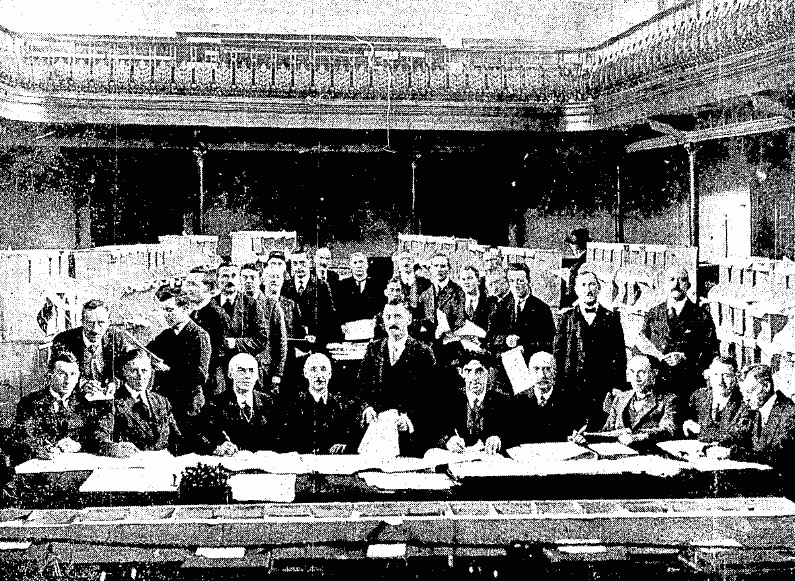Proportional representation declared a success
Dublin, 19 January 1920 - The municipal elections have been hailed as a triumph for the proportional representation (PR) system of voting.
Reflecting on the recent elections, the Irish Times has declared that PR is here to stay and should be extended to municipal and parliamentary elections across the UK. The newspaper stated that the pre-election fears about the operation of PR and its intelligibility to voters had been misplaced, as the system ‘worked without a hitch’.
The Irish Times lavished praise upon the Proportional Representation Society of Ireland which had enthusiastically undertaken an education campaign in every part of the country in the weeks prior to the election. The effect of this campaign was evident in the fact that the number of spoiled votes among half a million electors was ‘virtually negligible’.

How the new PR system played out in the Dublin area of Clontarf, Drumcondra and Glasnevin (Image: Irish Times, 19 January 1920)
The Irish Independent reported that, in Dublin, the number of spoiled votes ran at 2.2%. Many of the 1,372 invalid ballot papers had the figure '1' beside the names of all the candidates the elector wished to vote for. Other spoiled papers had crosses before names, while a few electors had failed to mark a first preference.
It appears that great efforts were taken to facilitate electors in properly casting their votes. At polling stations, illiterate electors were assisted in the exercise of their franchise by presiding officers reading the list of candidates out to them and then asking them their order of preference.
Another feature of the PR system, as it manifested in this election, is that it encouraged individuals and groups that might have been previously disinclined to contest. Alongside the more prominent parties, candidates ran under a variety of banners: Municipal Reformers, Ratepayers, Independents, Independent Nationalists, Independent Unionists, Commercial, Demobilised Soldiers or Sailors, Liberals, Liberal Unionists, Labour-Unionists, and Town Tenants.
With unionists losing seats in the north-east under this more competitive system, the Northern Whig did not consider the new system an improvement upon the old. The paper criticised PR as cumbersome and expensive. Any system which necessitated 14 or 15 counts and which in many cases ‘fails in the end to supply the necessary quota, stands self-condemned,’ it stated. However, closely observing Irish developments from London, The Times has remarked upon the ‘smooth’ running of the PR system and its ‘efficiency in securing the representation of minorities is patent in the returns’.
[Editor's note: This is an article from Century Ireland, a fortnightly online newspaper, written from the perspective of a journalist 100 years ago, based on news reports of the time.]





















